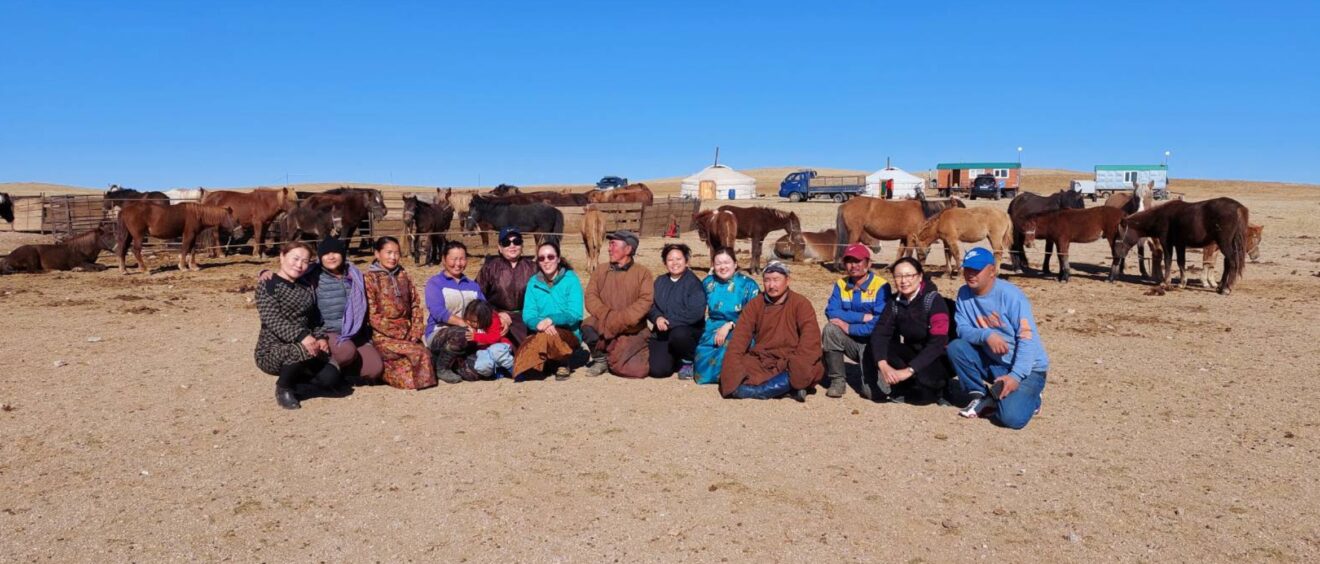
Building a network of women in action on mining
Both ENDS is dedicated to supporting civil society organisations (CSOs) as they tackle social and environmental injustice and inequality, and bring about a better world. We work to ensure that civil society can safely operate and has the decision-making power, resources and capacities to be effective. By connecting a diversity of actors – from the grassroots to the global level – we aim to maximize the power and effectiveness of collective action. It’s a crucial strategy in the current context of extreme corporate power, inequality and growing repression worldwide, which especially impacts women and girls from Indigenous and other marginalised communities.
As part of the Global Alliance for Green and Gender Action (GAGGA), Both ENDS has helped strengthen communities and organisations across Asia that share a common problem: mining. The Women in Action on Mining in Asia (WAMA) network grew out of a meeting in 2016 of GAGGA partners from Asia. WAMA includes both environmental justice organisations and women’s funds, and is coordinated by the Asia-based network Non-Timber Forest Products–Exchange Programme (NTFP–EP), Lilak, an Indigenous women’s rights group (Philippines) and the Mongolian women’s fund MONES. Since its founding, WAMA’s annual skillshare – organised with support from Both ENDS – has become an important event, drawing women from mining-affected communities across the region.
Linking and learning across Asia
In 2023, WAMA convened women from ancestral, rural, pastoral and mountain lands and small islands for a five-day ‘Regional Skillshare on Extractivism, Climate Justice and Women’s Natural Resource Rights’, in Chiang Mai, Thailand. Among other things, participants discussed the interconnected impacts of mining on women and Indigenous peoples, forests, livestock pastures and water. The skill-share provided an important space for discussion of emerging issues, including the impacts and threats of ‘green extractivism’ – large-scale renewable energy projects and mining of ‘transition minerals’ used in renewable energy technologies. Participants also exchanged good practices and strategies in relation to gender-just climate solutions, including barefoot ecology, ecosystem restoration, and sustainable and climate adaptive livelihoods that are based on the ancestral knowledge of Indigenous women. The skill-share involved women from eight countries across Asia, and brought in new network members from Thailand, Cambodia, Nepal, Bangladesh and Georgia.
In addition to the annual skill-share, WAMA supports members in their local campaigns and actions through peer-to-peer learning and support on key issues. To that end, a delegation of WAMA members took part in a week-long learning exchange in Mongolia in 2023. At the request of Mongolian member Steppes Without Borders, WAMA members from India and the Philippines conducted field visits in the Gobi region of Mongolia. The delegation visited herder communities affected by coal and spar mining. Among other impacts, the communities described the loss of access to grazing areas, depletion of ground water, a drastic reduction in income, exposure to dust and water pollution, and harassment from security guards. Together, Steppes Without Borders and the WAMA delegation identified actions for follow-up, including further collective support to bring more global attention to the herders’ struggle – a perfect reason for holding WAMA’s skillshare in Mongolia in 2024.
From extractivism to gender-just climate action
WAMA, Both ENDS and hundreds of partners in the worldwide GAGGA network are collectively advocating for an end to extractivism and false solutions to the climate crisis, and to mobilise more support and finance for women-led climate action. In a declaration composed at the 2023 skill-share, WAMA called on the UN, governments, international financial institutions and banks to recognise that women are actively protecting life systems, cultures, biodiversity and sustainable livelihoods everywhere around the world, and that they possess the knowledge and wisdom to guide the world in constructive pathways for addressing the global climate crisis.
Under the GAGGA umbrella, Both ENDS, together with Fundo Casa Socioambiental and Non-Timber Forest Products – Exchange Program (NTFP-EP), a coordinating member of WAMA, took the message directly to policymakers at the 2023 UN climate conference as co-organisers of the official side event, ‘Gender-just Climate Policy & Finance: From Barriers to Actionable Solutions’. Representatives of local CBOs and NGOs shared how they implement gender-just climate solutions, the obstacles they face to access finance and meaningfully engage in decision-making processes, and urged decision-makers to channel more climate finance to women-led community-based organisations. The side-event, which attracted nearly 300 online views and reached some 8,000 people on social media, featured an interactive panel with representatives from the Dutch, Canadian and UK governments.
Through network-building, linking and learning, and coordinated advocacy, Both ENDS and the GAGGA network are succeeding in mobilising support for gender-just climate solutions in general, and those of GAGGA partners specifically: in 2023, GAGGA was pleased to receive new grants from Global Affairs Canada Climate Finance Department, Chanel Foundation and Re.arc Institute, to deepen and expand the GAGGA programme.

A delegation of WAMA members took part in a week-long learning exchange in Mongolia. Photo by WAMA

WAMA members from India and the Philippines visited herder communities affected by coal and spar mining. Photo by WAMA
